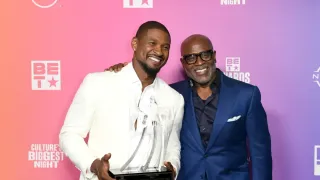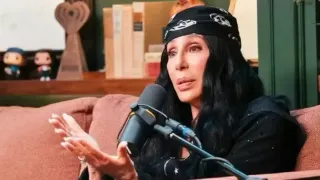November 28, 2020
In Hard- (and Soft-) Cover: Solosexuals, Adult Film Directors, and Bruce LaBruce
Jim Provenzano READ TIME: 13 MIN.
Five new and recent books on gay pornography explore the making and enjoyment of erotic films and videos, from their early days to today, with performer and director interviews, and the diaries of director Bruce La Bruce.
Head Space
For the sapiosexuals among us (those turned on by intelligent people), historian and LGBTQ scholar Jeffrey Escoffier's "Sex, Society, and the Making of Pornography: the Pornographic Object of Knowledge" explores how sexual acts have been documented in various media and how it effects culture and even behavior.
While academic in its approach, multiple interview excerpts offer a look behind the scenes of how porn directors and performers constructed what are now familiar tropes and clich�s of documented sex acts.
In the paperback review copy's 217 pages (29 of them footnotes), Escoffier parses out the history of cinematic porn, its growth and rise in popular culture and the economy. The multiple roles porn actors take on, and the differences between their work and the fantasy 'scripts' (literal and theoretical) they assume are defined and examined.
The innovations of early feature directors, some who came from musical theatre backgrounds, compares the cinema verit� style of New York films, and their historic relevance in documenting the post-Stonewall/pre-AIDS 'sexual revolution' – to the story-structured videos produced by California directors.
In the midst of an exploration of the ideas of 'situational homosexuality' versus gay sexual identity, the unique undefined approach of masculinity visualized by auteur Joe Gage's 'road trip' trilogy provides a fascinating example.
Escoffier's study shows how, for many gay men, porn became a liberating form of entertainment, from the early 1950s mail order physique magazines, to movie theatres and peep shows, to home video and online websites. The study, however, is marred by quite a lot of repetition. A description of Poole's classic "Boys in the Sand" is repeated four times in different chapters. Similarly, some porn actors and directors' quotes are repeated in several chapters, and Escoffier relies on actor Rod Barry as a quote and example more than 20 times.
Despite these flaws, the study investigates several aspects of the porn industry, including straight and, later, transgender porn, focusing on pay disparity (men get less than women) the rise and fall of 'narrative' stories in features, the persistence of the fictive "story" told via sex acts, and even a chapter on "gay-for-pay" among the likes of Jeff Stryker and Ryan Idol.
With a focus primarily on the rise and fall of studio porn and its related scenarios and economics, toward the end, Escoffier touches on other forms of porn; actors' cam-shows, nightclub appearances, strip acts and escorting. Yet, a recently relevant chapter seems missing; the near-collapse of studio porn and the rise of fan pay sites, where independent porn actors make their often ineptly-shot yet unscripted form of porn. It would interesting to read the author's take on that.
Rutgers Press, $27.95, 254 pages https://www.rutgersuniversitypress.org/
Wanking with Himself
In his short, self-published "The Happy Hypersexual," Toronto-based Jason Armstrong (a pseudonym) offers a third collection of essays, or "Bator Diaries," about his own sex life, mostly as a "chronically addicted masturbator" and self-described porn addict. He documents his obsessions and frequent inconveniences made in order to accommodate his driven libido.
Armstrong defines himself as solosexual and autosexual, i.e, he's attracted to watching himself masturbate. Despite having shared videos of himself on porn websites, he's not as turned on by rewatching his own clips. His tales of visiting a Toronto bathhouse prove unsatisfying. "As a solosexual, no man can really give me what I need as fully as I can give it to myself," he writes.
His preferences prove timely, as he narrates the oncoming COVID-19 pandemic from its first widespread attention and global reactions in March 2020, and he and his sister's probable infection. Working from home leads to even more masturbation (three to four hours a day).
While much of the writing spirals off into related tangents (some set in New York City), Armstrong does confront opinions outside of his own onanistic private life. "Is my sex life considered pathological only because it falls outside prevailing norms?"
Whether you're equally obsessed, or relieved to compare your own lesser solo sex habits, Armstrong explores aspects of being a devoted wanker.
$10.99 http://jasonarmstrongauthor.com/
T&A and Q&As
For a feast of interviews, the two books from Editions Moustache are packed with extensive Q&As with porn actors and directors from the 1970s to 1990s, and PG-rated black and white photos or illustrations of the actors.
In "Directing Sex: Interviews with the Directors of Gay Pornography," writer Jerry Douglas discusses making sex flicks with dozens of the most well-known and lesser-known men behind the camera in reprinted interviews from magazines he edited.
Divided in two sections, "The Golden Age" and "The Platinum Age," writer and director Douglas talks shop, after an introduction with a brief history of the gay porn eras from the 1970s to recent years.
Pioneering director Wakefield Poole reminisces about Fire Island and its inspiration for his groundbreaking hit "Boys in the Sand," as well as being at the famous Continental Baths for Bette Midler's shows ("I wasn't watching. I was fucking.")
Scott Hanson ("Dynastud II") discusses the making of the historical narrative film "The Song of the Loon," based on the Richard Amory novel, how the score was composed by an unnamed (later Oscar-winning) musician, how he was fired by the producer mid-shoot, and why the resulting film was re-edited into an unfortunate mess.
Barry Knight and Russell Moore share their tales of shooting now-vintage '70s classics like "The Experiment," "Greek Lightning," and "The Insatiables." Scott Masters (aka Robert Walters) discusses his expansive career from the 1970s film loop single-scene years of Nova Studios to big-budget "porn star" VHS epics like "The Bigger They Come," "Powertool 2," and "Behind the Barn Door."
Many of the directors mention how San Francisco's much-missed Nob Hill Theatre as one of the first adult theaters to premiere their films. Hand in Hand Films, known for classics "Ballet Down the Highway, Drive" and "A Night at The Adonis," directed by the late Jack Deveau, are discussed with his former partner Robert Alvarez and friend Kees Chapman.
Cinematographer Tom Howard shares some unique technical tips in his work with Steve Scott ("Track Meet"), including teetering atop a partition in a men's room for the aptly titled Dangerous, and the use of a handy milk-filled syringe to "accentuate" a money shot.
Toby Ross, who made his first film in 1974, tells of his impressive career's highs and lows in envisioning twink narratives with a romantic style.
Fox Studio and Sierra Pacific's John Coletti, who started as a performer (as John Traynor), and was once a model for Colt and "Playgirl" (July 1974), shares his early life in San Francisco, his longtime work and life partnership with Bill/Ken Harrison (the star of Wakefield Poole's "Bijou") how he cared for Harrison though his illness and death of AIDS in 1991, and how his knack for picking up straight muscle men led to his prolific career ("Intruders," "Muscle Up," "Hard to Come By," "The Biggest One I Ever Saw," and the best-selling Fox calendars).
Composer E.M. Diaz shares his music inspiration for scoring epics like Falcon's "Code of Conduct" series. San Francisco directors Steven Scarborough, Todd Montgomery and John Rutherford share their directorial stories in the years when Falcon, Mustang and Hot House studios were kings of the industry.
Non-American directors are well-represented with George Duroy of Bel Ami fame, the prolific Kristen Bjorn, Jorg Andreas (Cazzo Film), British Director Mike Esser (Pride Video), and William Higgins, who recounts his "Prague Years" of filming European twinks and hunks.
Several more prominent directors get several pages of text, and the book closes with Escoffier's expansive bio of Douglas' career, with a few cover pages of the now out of print "Manshots," which Douglas edited. The book includes PG-rated vintage ads and promotional photos from several films.
Editions Moustache, $27.99, 241 pages
Men on Film
"Close-Up: Interviews with the Performers of Gay Pornography" includes dozens of conversations documented by prolific porn director and writer Jerry Douglas, each previously published in "Manshots" and other adult publications.
The book's introduction, again by scholar Jeffrey Escoffier, recounts the pre-Internet days of porn, from studio production to recruitment, and how a surprising 60% of actors were gay-for-pay (according to director Chi Chi LaRue). The then-VHS-only star system' focused on marketing hyper-masculine Ryan Idol, Jeff Stryker and Ken Ryker.
In the 'Whatever Happened To..." section, living and deceased actors of yore include Richard Locke, Scott O'Hara, Leo Ford and Kevin Williams. Performers whose stars shone brightly in the 1990s abound, from Kurt Young and Logan Reed to Nino Bacci, Cole Tucker and Blake Harper.
Along with the usual questions of how they started making porn, some offer surprisingly astute and funny comments, like Ben Barker, who notes from an early porn shoot for the 1979 film "Kip Noll and the Westside Boys," "I went into the shoot aiming to be a male Louise Brooks and in the rushes I came out as a sexy Harold Lloyd."
While some interviewees are mostly forgotten, others stand out. Kevin Williams shares odd memories, like being recognized by fans at a shopping mall with his mother, and shooting the ridiculous quicksand scene in "Stryker Force."
Many of the interviews were conducted years after their career peaks, like Kevin Redding ("The Idol"), whose post-porn years included poverty, drug addiction and homelessness. The late Leo Ford discusses yoga and tantric meditation. He, like several interviewees, notes how they initially said no to doing porn, but later changed their minds. Hesitation, self-doubt and regret are included in many comments, like a Kurt Young quote about 'functioning without emotion," and just "keeping my dick hard" with an unpleasant partner in "On the Prowl."
International actors interviewed (with English translators) include Johan Pulik, Ettor Tosi and a few others, including the voracious bisexual Dano Sulik, who shares tales of his early sexual experiences.
Former Emmy-winning weatherman Steve Marks admits that he was good at porn because, "I really, really like sex." But he also smashes the idea that performing in a scene is good sex.
"When you do a movie, it's sex, but it's not sex. A movie that take nine hours with twelve people watching you, with lights up your ass... The trick is making it look great, and that's what our job is."
Editions Moustache, $27.95, 147 pages
Little Bruce Coup
Few film directors have balanced art and graphic sexuality like Bruce La Bruce. From his debut black and white "No Skin Off My Ass," to his subsequent raved and panned feature films "Super 8 �," "Skin Flick," "The Raspberry Reich," "Hustler White," and "L.A. Zombie," La Bruce courted controversy with his explicit and non-explicit versions, and he created a matching persona by often casting himself (real name Justin Stewart) in sexually active roles.
"Porn Diaries: How to Succeed in Hardcore Without Really Trying" documents a few years of his his life and times behind –and in front of– the camera, from his defense of his porn/art in previously published essays, to the many on-set difficulties told with dry wit in his production diaries while making "sexually explicit art films."
Despite one's opinions about the quality of La Bruce's films, in reading his book, one can't deny the intelligence with which he's created them.
"Porn is in some ways like a vast collective sexual unconscious where all sorts of dark and politically incorrect fantasies can be worked out in a healthy and discrete and unharmful way," he writes.
In sharing his youthful inspirations in Toronto's punk scene in his early zine-making days, and his distaste for the consumerist conformity-filled gay scene of the 1980s, La Bruce shows how his films served as a taunting rage-filled response to the banality of assimilation.
Having been called "a pornographic Brecht," La Bruce also discusses his deliberate cinematic distancing techniques like the abrupt editing of images and audio, used to remind the viewer of the illusionary aspect of film. While avant-garde filmmakers before him implied pornography, La Bruce embraced it fully.
The auteur's production diary entries for "Skin Gang" (1998), "The Raspberry Reich" (2002) and other films are a feast for fans of behind-the-scenes gossip, banality told in his wry style, and include tips on low-budget filmmaking; example: How to recreate a car crash in remote Topanga Canyon for "L.A. Zombie."
The lengthy essay "The Love God" compares a strange Don Knotts comedy (nerdy man inexplicably becomes a Hugh Hefner-esque magnate) to La Bruce's persona creation, and reveals his inspiration for "Hustler White" (which featured model Tony Ward) from classics like "Sunset Boulevard" and "Whatever Happened to Baby Jane?"
In recounting his still photography work for "jerk-off magazines," La Bruce reveals the (often cinematic) inspiration for a few shoots, while ruminating on his goal of working as a 'legitimate pornographer.' He dismisses his quisling critics as comparable to the famous line in "Valley of the Dolls": "Art films? Nudies! That's all they are. Nudies!"
Some sections are a hoot, like his Los Angeles misadventures wrangling models from snooty agents to shoot a Halloween-themed set with fake-blood-splattered hotel room walls at an event that also featured his friend (and one-time costar) Vaginal Davis.
The book also includes an extensive Q&A with legendary porn actor Peter Berlin, and many very nice artful photo portraits and production stills. As with the other two books from the same publisher, most photos are oddly censored by a series of black dots.
Editions Moustache $16.99
For better or worse, porn is now a part of our culture in more aspects than ever before, from alleged videos of presidents performing kinky sex acts with prostitutes to teens wanking on TikTok. These collected books break down stereotypes, humanize the industry, and offer insights for both hardcore fans and the mildly curious reader.
Arts & Nightlife Editor Jim Provenzano's seventh novel, "Finding Tulsa," about a 1990s gay film director, includes chapters about the making of a feature gay porn video. www.jimprovenzano.com
Help keep the Bay Area Reporter going in these tough times. To support local, independent, LGBTQ journalism, consider becoming a BAR member.






